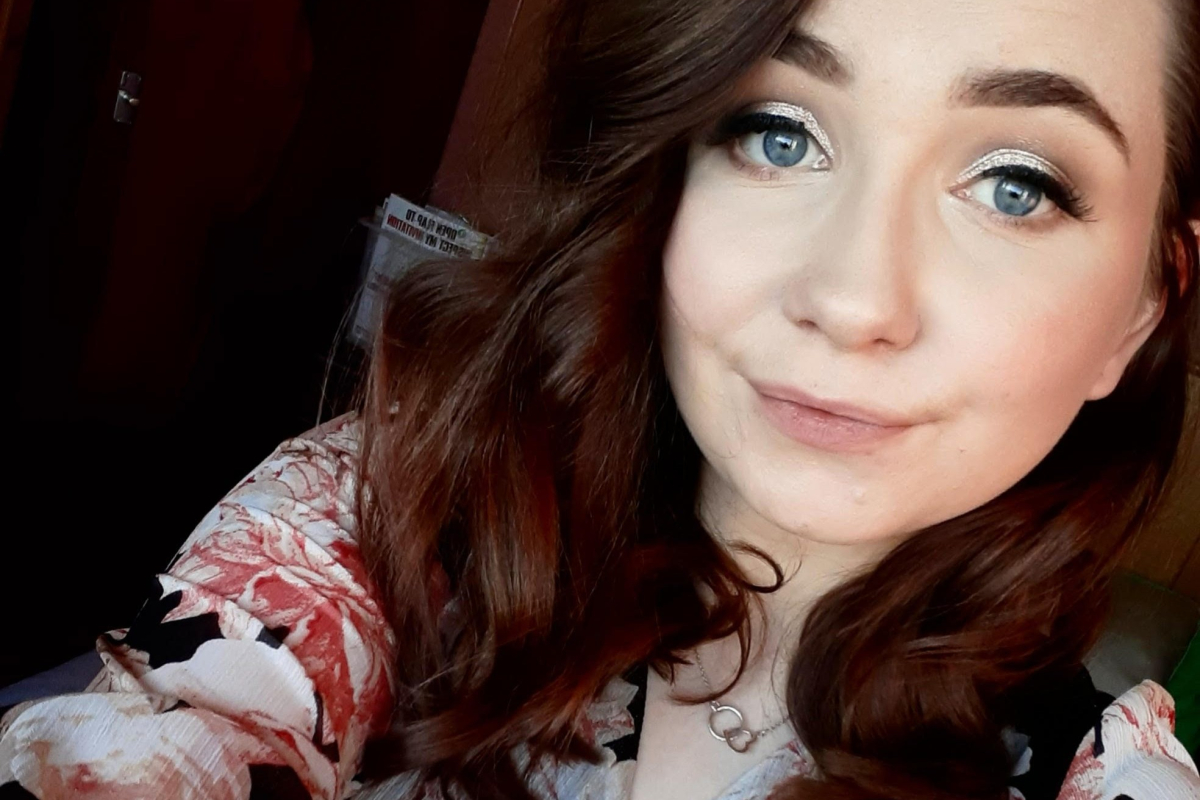A LANARK woman whose severe pain was dismissed by doctors as “just a bad period” was diagnosed with endometriosis 10 years later.
Rhiannon Turner, 26, waited a decade to be diagnosed with the chronic condition, which affects one in 10 women in the UK.
‘Endo’ is when tissue similar to the lining of the womb starts growing in other places such as the ovaries, fallopian tubes, bowel and in some cases the diaphragm.
Support Worker Rhiannon opened up on her experience for Endometriosis Awareness Month – and says dismissive doctoris and a lack of awareness of what is considered ‘normal’ has negatively impacted her physical and mental health.
She told The Scottish Sun: “I’ve had endometriosis symptoms for roughly 12 years but first visited the GP when I was 15 years old due to heavy, painful and irregular periods.
“I was told it was just a bad period – every woman gets them.
“I tried various types of the pill and it provided me with some relief.
“Endometriosis couldn’t have been further from my mind – I had never heard of it.”
At the age of 17, Rhiannon started to experience bladder issues causing her “constant UTIs and painful bladder movements” but didn’t think there was a link.
“My symptoms range from blood in stools, constipation and diarrhoea, bladder problems, back pain, leg pain and stiffness, numbness and weakness.
“I also suffer with extreme pelvic pain, painful sex, extreme fatigue and nausea. My symptoms have increased significantly and are now affecting every aspect of my body.”
What is endometriosis?
Endometriosis is a chronic condition that occurs when tissue similar to the lining of the womb grows and attaches itself to other organs causing inflammation and pain.
The most common symptoms are:
- Painful and heavy periods
- Painful sex
- Infertility or sub-fertility
- Painful bowel movements
- Fatigue
- Brain fog
- Depression
- Abdominal pain outside of your period
- Pain elsewhere in the body such as chest, leg or shoulders.
It is worth noting you can have endometriosis with no symptoms or very few as symptoms vary from person to person.
You can find out more here.
She said she was previously diagnosed with IBS although now believes it has been bowel endometriosis all along.
“This to me highlights that if I had been taken seriously when I was in my teens, the disease would not have been given the chance to progress as quickly as it has.”
Despite having a cystoscopy and hysteroscopy, it did not provide Rhiannon or her doctors with any answers – leaving her with more questions.
“Going through my teens, I was willing to accept, and did genuinely believe that what I was experiencing was normal and there was no medical reason for my symptoms.
“When I was first referred to gynaecology, I was seen by a consultant who didn’t have any answers and said that he suspected I was just suffering from a bad period.”
The condition still has a stigma attached to it and has been dubbed the ‘missed disease’.
PARDON YOU!
Despite a long battle, Rhiannon was about to face yet another brick wall.
“I had my first laparoscopy in March 2019 when I was 25 which found no endometriosis. I was disheartened by this as I still had severe symptoms.
“Post surgery I felt totally lost. My mental health was badly affected and I started doubting myself – I was preparing to live with an unknown illness that I would just have to accept.”
Despite being told she didn’t have endometriosis, Rhiannon knew something wasn’t right and began looking into the disease more.
“I knew I had endo – it just fitted my symptoms.
“I went to see a private consultant as I had a long wait to see my own consultant and wanted to talk to someone who had a bit more knowledge about the condition.
“After going private, I felt so validated and relieved – he listened to what I had to say and was reassuring throughout telling me he was adamant I had endometriosis.”
The private consultant told Rhiannon to push for an MRI and finally seven months after surgery found no endometriosis, Rhiannon received a letter stating “evidence of endometriosis” had been seen on the MRI scan.
“When I was finally diagnosed in February 2020 after another surgery, I remember I felt a huge wave of relief.”
After 10 years I had answers for what was wrong – the pain wasn’t in my head.
Rhiannon Turner
Though excision – cutting away the affected tissue – is the gold standard when treating endometriosis, this is not always possible due to lack of specialists and treatment is dependent on where the tissue is found.
Rhiannon was treated with ablation, a common but less effective way to treat the disease by burning away the surface layer of the tissue.
Rhiannon explained: “I had some relief from symptoms for around two months however this was short lived and my symptoms are now getting progressively worse.
“I’m waiting to be seen again for more surgery as my consultant suspects deep disease involving the bowel and bladder.
“Currently I’m in temporary chemical menopause until I have my surgery, which has caused it’s own problems including insomnia and hair loss.”
Looking back, Rhiannon feels as though she has been “at times” let down by doctors.
She addded: “I think there needs to be more awareness around endometriosis and it needs to be taught in schools – I know I would’ve pushed for more answers had I been taught about it.”
March is Endometriosis Awareness Month and with lots of attention now being drawn to the condition, Rhiannon believes the Scottish Government needs to look now look more into the “life changing and debilitating condition.”
Faye Farthing, a spokesperson for Endometriosis UK, said: “It takes on average a shocking 8.5 years in Scotland to diagnose endometriosis.
“Unfortunately, all too often, those with endometriosis are told their pain is “normal”, “just part of being a woman”, or even in their head.
“These are phrases we hear being said in workplaces, schools, and even in healthcare settings. More must be done to educate society, employers and healthcare practitioners to ensure that everyone recognises the symptoms and impact of endometriosis.
“Change must also start at school – and the Scottish Government should commit to mandatory menstrual wellbeing education in all schools so that all young people recognise what a normal menstrual cycle is and when and how to seek help.
“The impact of lengthy diagnosis on all aspects of a person’s life including their mental health can’t be overstated.
“Those with endometriosis are being robbed of the future they deserve because they have been failed by society allowing them to believe what they are experiencing is normal.
ENDO HOPE
Life-changing endometriosis drug could offer hope to millions of sufferers
Doc said endometriosis was ‘period pain,’ now I’m having my womb removed
NEW RISK
How having a TAN could be making your endometriosis worse, docs warn
CHEST AWFUL
I spent £17k on boob jobs – but the implants made me so sick I thought I’d die
“Everyone has a responsibility to turn this around. Latest stats show that 95% of those with endometriosis feel the condition has negatively impacted their wellbeing and mental health, with nearly all of those stating they would have liked access to psychological support yet was never offered any.
“Years of being told that their endometriosis is in their head coupled with the symptoms of endometriosis being commonly associated with mental health issues such as chronic pelvic pain and infertility, is leading to those with the condition struggling to cope, and without access to the physical and mental health support they need to manage their condition.
“More must be done to ensure pathways are in place to support the physical and mental health of those with endometriosis”.





















